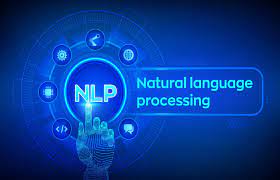Content
The language has long become the most used tool among mathematicians and data scientists for its quick assignment of value parameters, numerous libraries for data and math, and ease of use. Their visualizations tools are top-notch as well and they can process big chunks of data in no time.
Is algo trading the future?
Future of Algorithmic Trading
India has 50-60% penetration of algo trading, but the developed markets have much higher penetration, more complex products, and more accessible regulations. Indian markets and algorithmic trading will continue to grow.
From a business perspective, we’re an agile software team crafting and launching fully-fledged web and mobile apps for clients worldwide. But in our geeky day-to-day life, we’re a bunch of friends fully committed to our passions. The app of Robinhood was created with the help of Python and Django and they still recruit Python developers for newer projects.
How is Python used in FinTech?
The financial sector is huge and our list covers only a grain of it. However, in each area, there are countless possibilities for startups and small businesses emerging every day. That’s why it’s important to stress that Python can be used in online banking as well as payment systems and stock markets.
- You will learn how to use virtual environments, how to program using Jupyter Notebooks, Boolean data type and algebra, numeric types like integers and float and so on.
- If you want to reap the benefits of a Fintech strategy with Python, knowing the libraries is a big advantage.
- We have extensive experience creating Python software for fintech and would be glad to profoundly analyze your case and offer the best solution to your needs.
- As the programming language evolves, more and more FinTech products in the cryptocurrency segment will emerge.
- P2P lender, Zopa, cuts out the banks and other middlemen, allowing lenders and borrowers to deal directly with one another.
- Founded in 2009, Kabbage sells its technology to large banks that in turn lower lending costs and offer credit to small business owners.
- The API connections needed for the smooth functioning of any FinTech app are easily available in Python.
The simplicity and shorter length of code also guarantee a faster time-to-market which can significantly reduce the costs of your project. The speed is especially important for startups who need to create an MVP quickly and, consequently, get the funding faster.
Where is Python used in FinTech?
There are popular Python solutions that are making their way to FinTech. With the advent of digital transactions and cryptocurrency, Python finance projects have seen tremendous growth. Some FinTech apps examples include Stripe, Paypal, GooglePay, Venmo, amongst several others. Qonto launched its business banking application in July 2017, setting out to accomplish for businesses what N26 has done for individuals. For €9 a month, business owners receive a Mastercard, a French current account with IBAN to receive payments and the ability to manage transfers and debits. An up-and-coming fintech, Bond Street is transforming how small businesses gain access to lending through technology, data, and design. The company recently renewed its loan purchase agreement with global banking investment firm, Jefferies, allowing for up to $300 million of loan purchases.
- A normal person with basic computer knowledge can learn the basics of Python in a single month and this ease of learning comes down to the simple Syntax of this language.
- Given the collective brainpower of its founders, any engineer applying for a job at Kensho will have to have an excellent track record.
- Python also offers good data visualization tools for easily digestible reports for users who are far away from finance.
- Libraries are yet another tool that helps you to easily solve popular problems, pull task-specific code and documentation.
- Python is a simple yet robust programming language that helps to build high tech financial apps.
Developers have plenty of resources to make their work easier and faster, and business owners can enjoy faster product delivery. There are also less well-known libraries for more specific functions in fintech like quantecon.py, ffn, pypi, etc. Python and Django work perfectly well together to ensure quickness of coding and availability of tools for working with data. This short but helpful course has been specifically designed to give you an understanding about using Python for financial analysis. This is a more advanced course meant for finance professionals operating in very demanding roles. There is extensive use of calculus, statistics, probability theory and some understanding of financial instruments is also recommended.
Is Python Good for Financial Modelling?
Python’s development is highly robust for Finance and FinTech applications. Python is now the third most popular programming language behind C and Java. It is used in Fintech because it can work efficiently with data.
Simple and flexibleThe simplicity of Python-based systems is the result of a flexible and simple code. Developers can write code quickly as the syntax is not too hard. Some of the already popular Python-based solutions in FinTech are Stripe, Robinhood, Zapa, Square, Paypal, amongst many others. If you are building FinTech products to cater to this multiplying need, you are on the right track.
Pandas
A normal person with basic computer knowledge can learn the basics of Python in a single month and this ease of learning comes down to the simple Syntax of this language. With Robinhood, buying and selling stocks without trading fees gets easy – not only for the affluent but also for regular human beings.
- At the moment, the functionality grew to invoice for freelancers and independent contractors, and offline terminals.
- There are dozens of excellent Python courses out there, but very few specifically focus on finance.
- It is powering big products like PayPal, Stripe, Square, and others.
- Robinhood also works with cryptocurrencies, namely Bitcoin, Ethereum, and Dogecoin.
- The SciPy library includes modules for efficient mathematical routines such as linear algebra, interpolation, optimization, integration, and statistics.
As the programming language evolves, more and more FinTech products in the cryptocurrency segment will emerge. The global market is slowly starting the use of crypto, which will eventually lead to higher usage of Python development services.
Simple SEPA Credit Transfer (pain.
For example, budgeting apps need integrations with banking, insurance tech needs integration with numerous integrations with different insurance providers, etc. Sometimes it is quite difficult to connect everything in a secure, unproblematic way. This project should give you the confidence you need to undertake real projects and also give you something to talk about in an interview or other such interaction. There are dozens of excellent Python courses out there, but very few specifically focus on finance. Python can be used for investment banking tasks, risk management, security analysis, automated trading and several other applications in finance. But learning how to do this requires some specialized training. Python is loved by financial data analysts, traders, cryptocurrency geeks and developers alike.
Our portfolio includes the use of modern architecture that guarantees easy maintenance and easy integration with the best fintech services. The fintech projects need to be fulfilled in compliance with internal and external requirements and standards and conduct according to multiple jurisdictions. The most important library for scientific and technical computing allows adding ML and AI capabilities to FinTech products. The best library for FinTech, involving the backtesting of trading strategies and analyzing financial markets. Python knowledge of pandas is essential for all developers to inculcate data manipulation capabilities in their application. CryptocurrencyThe latest advancements in Python are in the cryptocurrency segment.









